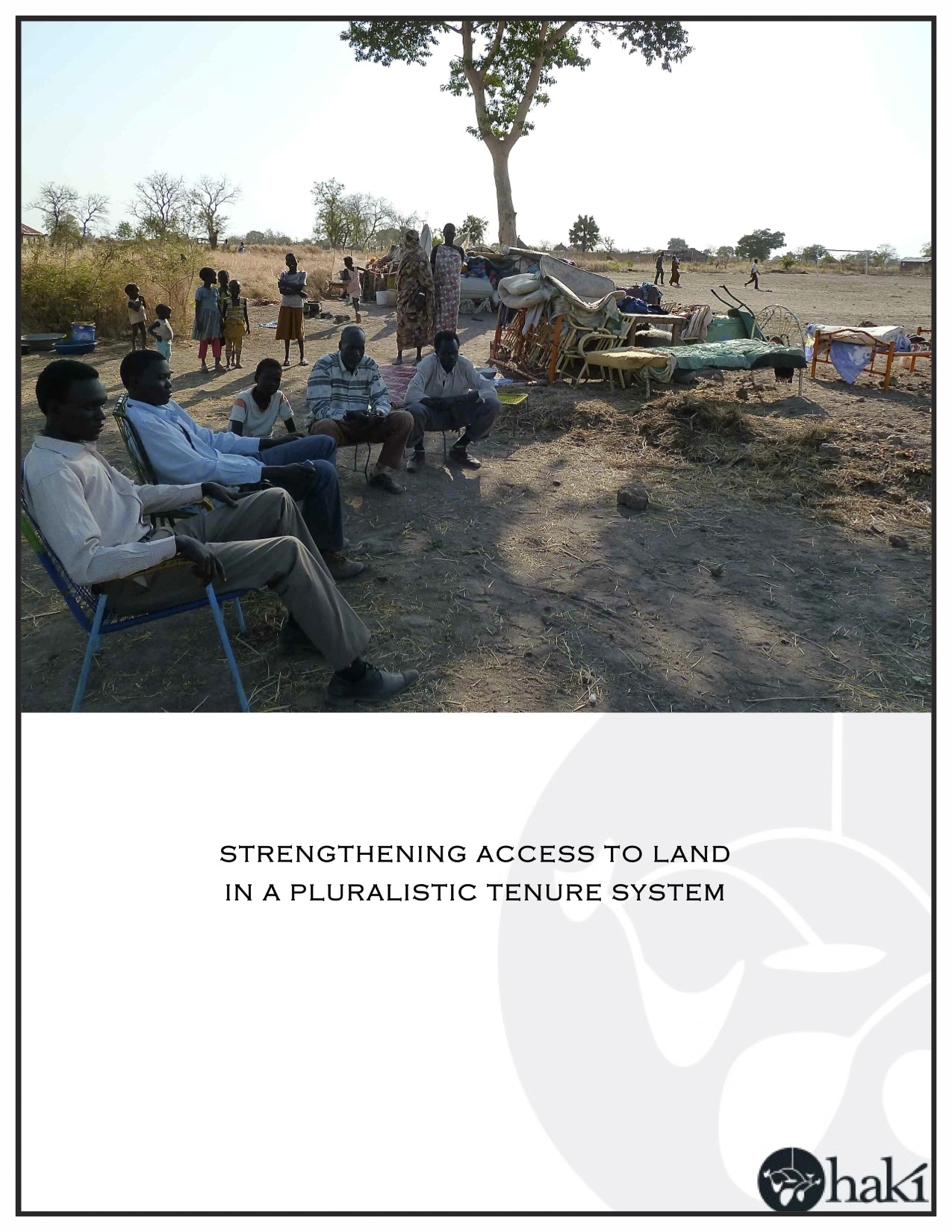Understanding the dynamics of customary ownership and control of land is essential to strengthening tenure and access to land in pluralistic states. Customary traditions of land tenure emphasize moderate use, restoration, and community health and prosperity, but are vulnerable to elite capture. As in other conflict-affected countries land has defined the history of South Sudan. The South Sudanese people have long strived for secure ownership of lands and natural resources, not at risk of appropriation and alienation by foreign powers. Now as South Sudan strives for stability and development land is both a keystone to livelihoods and economic growth and a tinderbox for future conflagration. This study presents research conducted in conflict-affected areas of South Sudan that highlights barriers to access to land - challenges common to plural tenure systems around the world. The study demonstrates that displaced women, returnees and other vulnerable populations are consistently subjected to corrupt practices and are unaware of their rights both within and beyond the customary systems. Most often it is the grey area between customary and statutory, or the transition from one to the other that is used to take land from the vulnerable. The study suggests seven categories of recommendations to address these growing areas of inequity: 1.Community Legal Education and Information Dissemination, 2. Monitoring of Allocation and Disputes, 3. Advocacy with Government and Customary Officials, 4. Legal Assistance to Navigate between Systems, 5. Strategic Litigation, 6. Support to Strengthen and Professionalize Customary Justice Systems, 7. Heightened Focus on Women’s Rights.
Strengthening Access to Land In Plural Legal Systems

